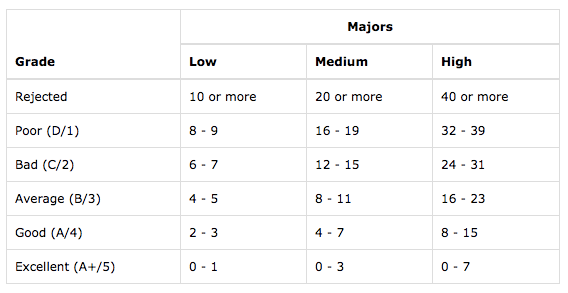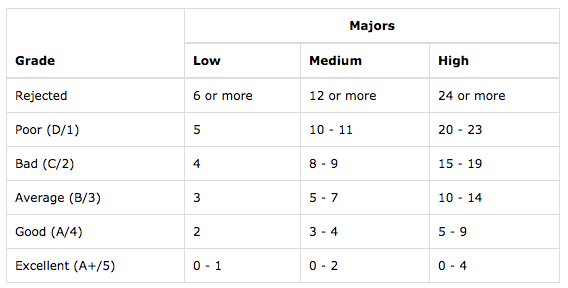
We all need people who will give us feedback. That’s how we improve. – Bill Gates
Scribie transcriber, are you already part of the Slack community? You wouldn’t want to miss out on meaningful conversations with your fellow transcribers and moderators.
In the Slack community, we value your feedback and put them into consideration, especially if it’s for the benefit of everyone. One of the discussions we had with the community is the grading system.
Now, we have good news for our Scribie transcribers…
We’ve introduced a new grading system that we believe will be fairer to you when grading your performance.
Learn more about the new grading system, which allows us to measure transcription skills more accurately, leading to smoother operations and continuous improvement.
Grading System
As you might know, the transcription work is graded by the number of major changes in the transcript vs. the delivered file. This applies for Transcription, Reviews and Proofreading.
At the same time, the reviewer and proofreader’s work is graded based on the number of errors they could correct.
Inspired by the suggestion of one of our transcribers, Jean-Marie. We recently made a change where we linked the grades to the difficulty levels of the file.
The criteria are now strictest for the low difficulty files and most lenient for the high difficulty ones. It’s going to stay the same for medium difficulty files. To reiterate, there are two types of changes, minor and major.
The work is graded based on the number of major changes using the new formula.

New grading criteria for Transcription step

Review (6 min file) and proofreading (18 min file)
The criteria for grading low difficulty files are stricter because working on these files should be reasonably straightforward, especially when compared to other files.
To get an Excellent grade for their work, transcribers are only allowed to have 0-1 major changes for low difficulty files and 0-7 major changes for high difficulty files.
The same applies for the reviewers and proofreaders, low difficulty files will have stricter requirements compared to high difficulty files.
With this new formula, we would like the our Scribie professionals to be more confident with their work without the fear of getting the file rejected, especially when handling high difficulty files.
The Challenge and Solution
We had an opportunity to reach out to Jean-Marie to share her insights in suggesting this change.
Being with Scribie for four years and counting, she’s witnessed improvements with the four-step process. However, she noted that the grading system could use some optimizations.
One of the challenges faced by Scribie professionals is working on high difficulty files with the fear of having the work rejected due to several major errors. This may be a shared fear, which resulted in canceling the file and, in the long run, resulted in having overdue files pile up.
The new grading system aims to bring meaningful changes by motivating transcribers to work on high difficulty files because of the leniency with major changes. If more transcribers are keen to work on high difficulty files, it’s expected to see fewer overdue files over time.
Over to You
Scribie’s specialty is manual transcription. For us to maintain our high standards at the scale we’re working with, we placed systems and policies us to grade your work accordingly.
We value your contributions as a transcription professional and seek to continue improving the system. We won’t be able to do it without your thoughtful and graceful feedback.
Looking to connect with the community? Join the discussion in Slack.
Interested in working with Scribie? Apply as a transcriber today.


Hello, how can I join the Slack community please?
Hello, you may request via support@scribie.com